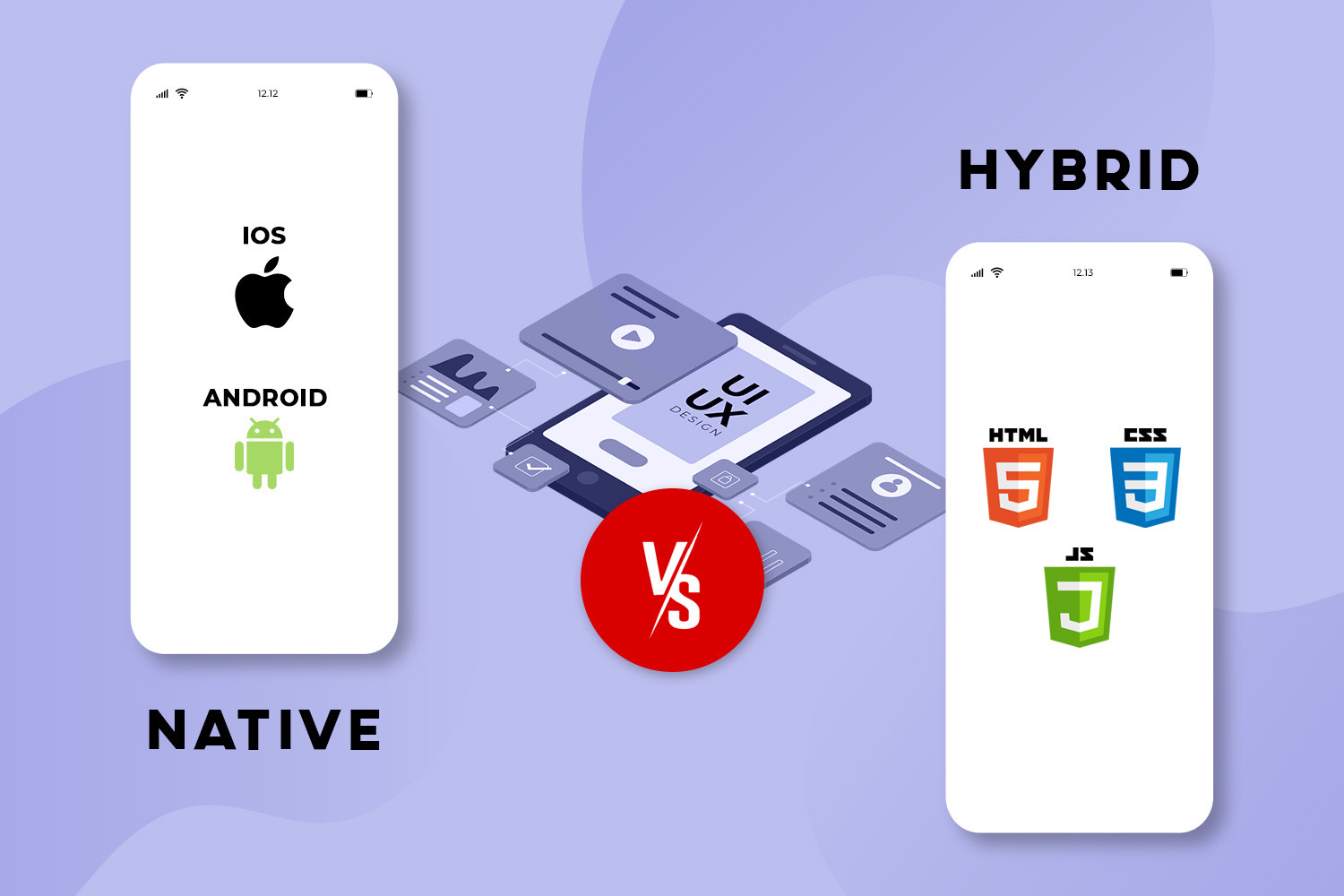Difference between native and hybrid app development
Native Apps
Examples of Native Apps
- Buzz Launcher (For only Android)
- Things 3 (For only iOS)
- Overcast (For only iOS)
- ParrotOne (For Android)
- FoxFi (For Android)
Hybrid Apps
Examples of Hybrid Apps
- Evernote (made with React Native)
- Baskin Robbins (made with Xamrin)
- Pacifica (made with Ionic)
- Sworkit (made with Ionic)
- Untapped (made with Ionic)
Advantages of Native Apps
High Performance
User Experience
Native apps provide a better user experience as they are designed to follow the platform’s design guidelines and offer a familiar look. For Instance, native apps use platform-specific UI components such as buttons, menus, and layouts to provide a consistent and intuitive user interface.
Access to device features
Native apps grant access to the native features of the device, such as the camera, GPS, and sensors allowing developers to develop feature-rich apps. With these device features, users can use the app freely and conveniently. The app will perform well to help the users in their times of need.
Better Security
Due to access to native features of the device, native apps can use device security features that provide developers leverage to build more secure apps. Moreover, native apps can store user-sensitive data securely.
Disadvantages of Native Apps
High development cost
Value comes with a good fee; the same goes for native apps. They give a smooth performance, a friendly user experience, and so on. Therefore, the development cost is higher because of the complex and time-consuming process the apps must undergo while developing.
Not suitable for all small business
For small businesses, developing and marketing a native app can be a little expensive compared to a hybrid app. Therefore, native app development requires a high budget. The process is complex and time-consuming, which can be challenging for small business owners in the initial days of the business.
Advantages of Hybrid Apps
Cross-platform development
Because there is a single codebase for all platforms, developers only need to write it once and deploy it wherever necessary. This nature of hybrid apps makes them cost-effective and time-saving solutions.
Faster development
Hybrid apps have a sort of “one for all” build that can save time and money when developing different versions of the same app. These apps save you much time and energy that you can use to do other important work.
Easier Maintenance
Maintaining a single codebase for all platforms can be easier and more efficient. Hybrid apps provide the benefit of handling bugs more effectively. With native apps, bugs must be handled individually (for every platform); however, this is not true with hybrid apps.
Easy to Scale
Since they can run on multiple platforms, they can reach a broader audience and provide consistent user experience across platforms which include iOS, Android, and the web. Hybrid apps are a cost-effective solution for those who aren’t able to invest in developing native apps.
Disadvantages of hybrid apps
Performance can be sluggish sometimes
In comparison to the performance of native apps, hybrid apps’ can run slowly sometimes as they depend on web technologies. You may also face slower launching processes. You may also face crashes if it has to load a bunch of data simultaneously and may experience some issues with the app’s interface.
Limited access to device functionalities
Hybrid apps may be limited in accessing all functionalities of the device. They may not access the native hardware components, such as sensors, cameras, file systems, contacts, and calendars. However, native apps can access these without any issues.
Native app vs. Hybrid app development: Which one should you choose?
Not all businesses have the same requirements and time. Thus, there’s no absolute answer to this. However, considering some important factors, you can decide what will work best for you. You already understand that your primary goal is attracting a large audience. Below are the 5 most important points we’ll discuss to help you decide.
Overall performance
How an app performs is also important; if you already understand that, it’s better to develop a native app. A native app is more secure, effective, and bug-free, allowing one to enjoy almost all features. By developing a native app, the customers will be satisfied with the overall better performance.
The current condition of your business
You also need to decide based on which stage you’re in with your business. A hybrid app can help you get enough audience if you’re in your initial stage. Native app development may be challenging for small businesses or start-ups with a tight budget. The development process of a native app is time-consuming. Plus, it’s not budget-friendly for businesses in its initial days.
Complexity and time
Developing a hybrid app is a better option to avoid a lengthy and complex process. It takes faster to develop, is easy to maintain, and supports a small business. In the initial stage of your small business, a hybrid app can be beneficial enough. In contrast, often, a native app development process consumes a longer time.

Leave a Reply